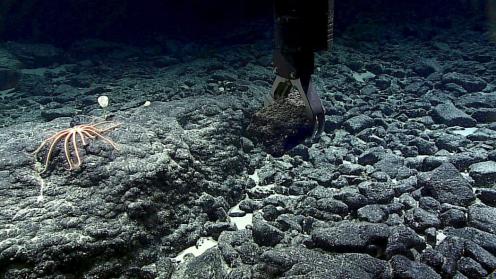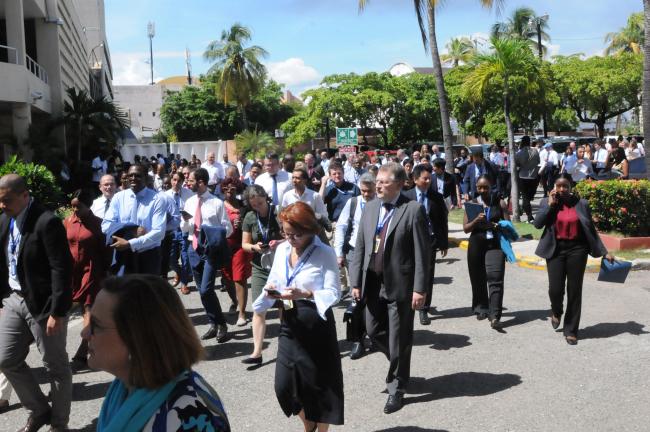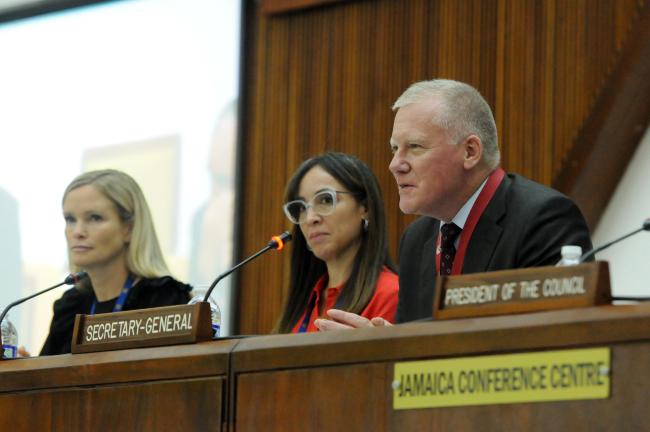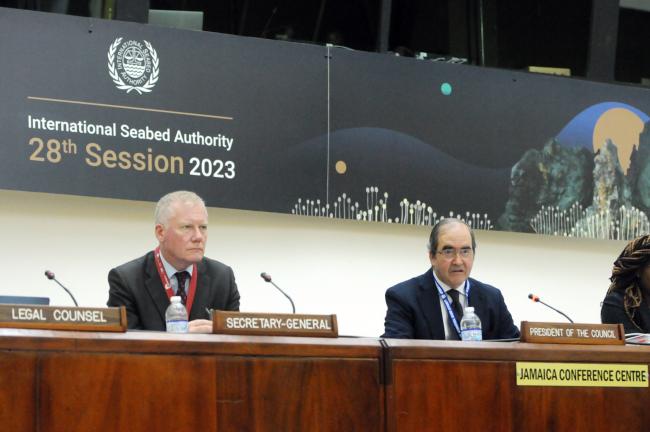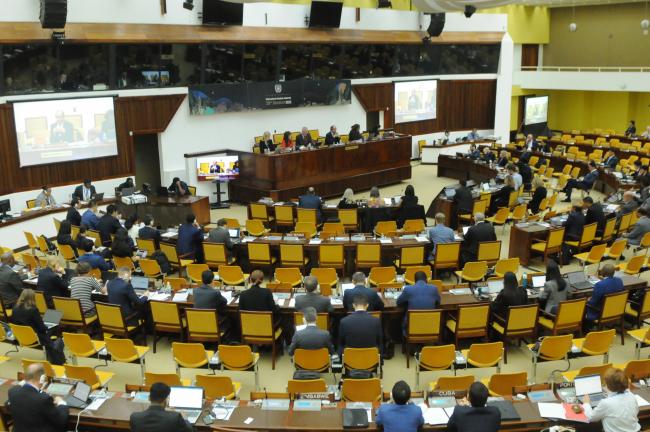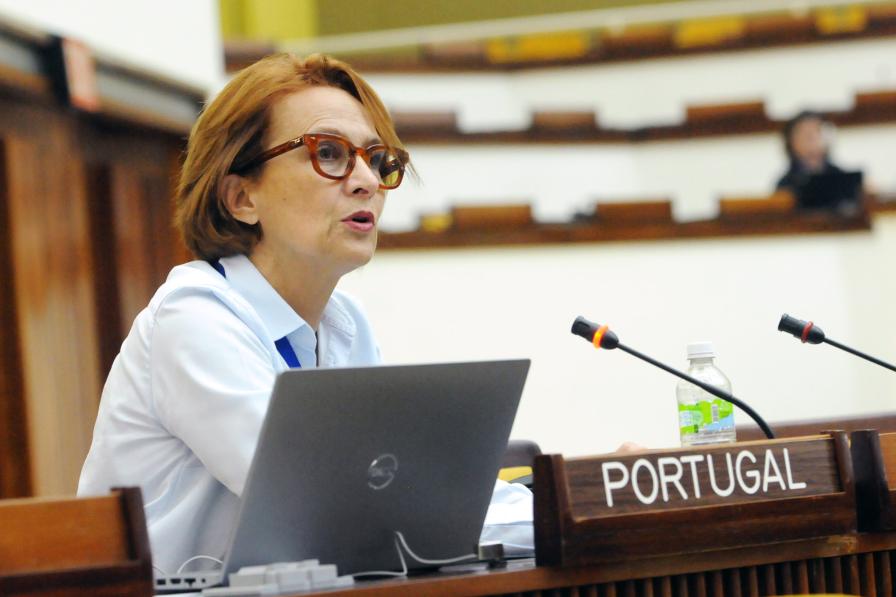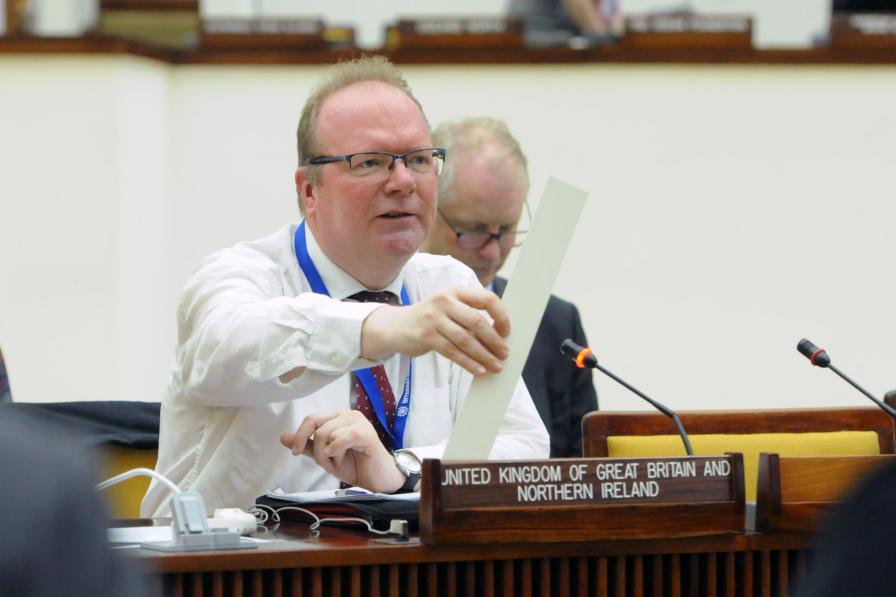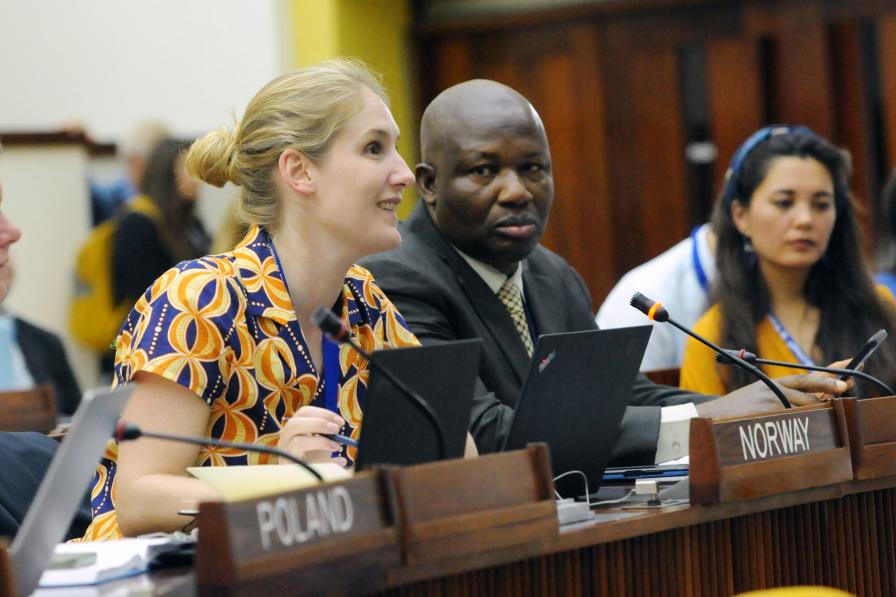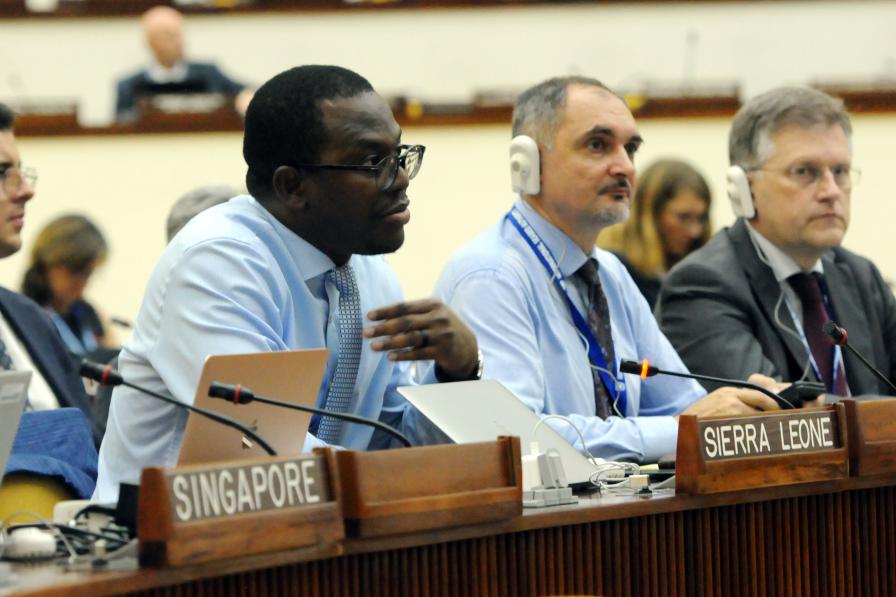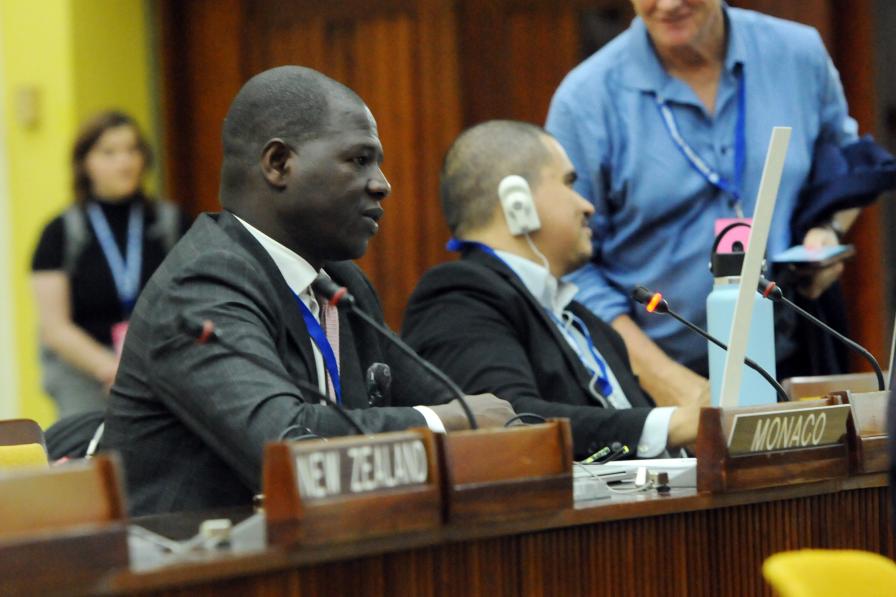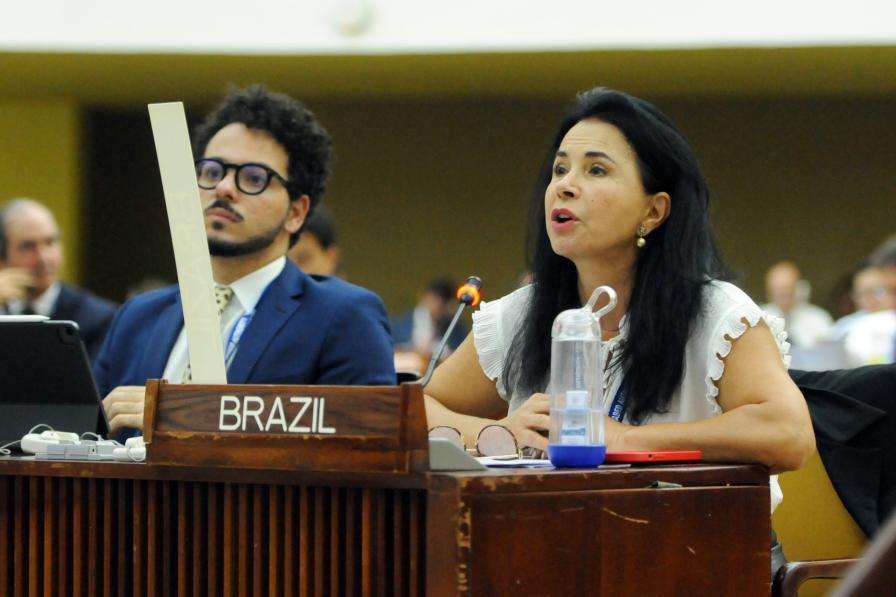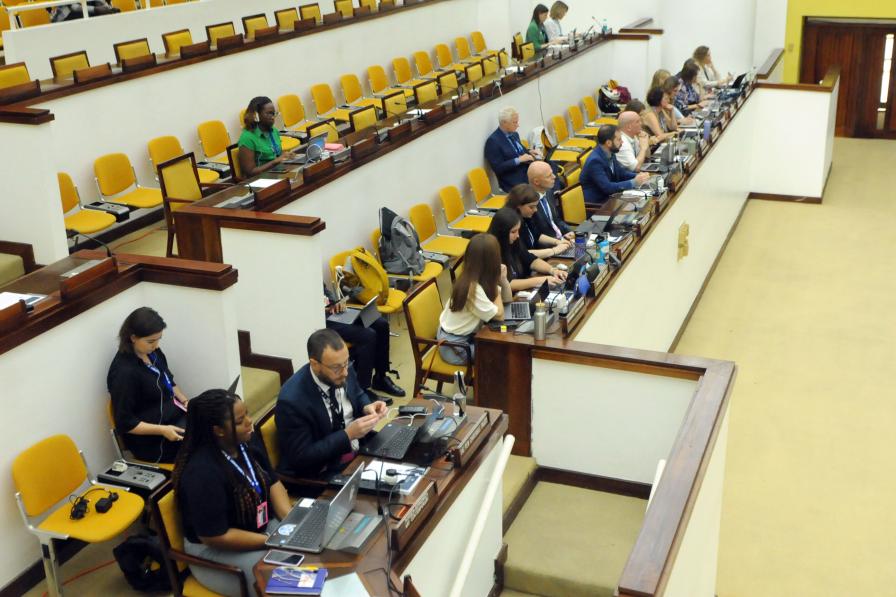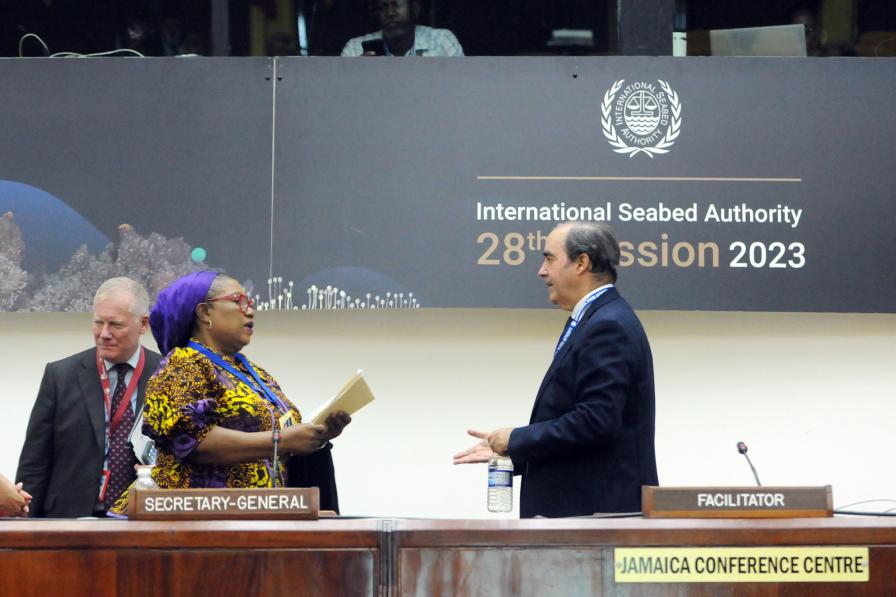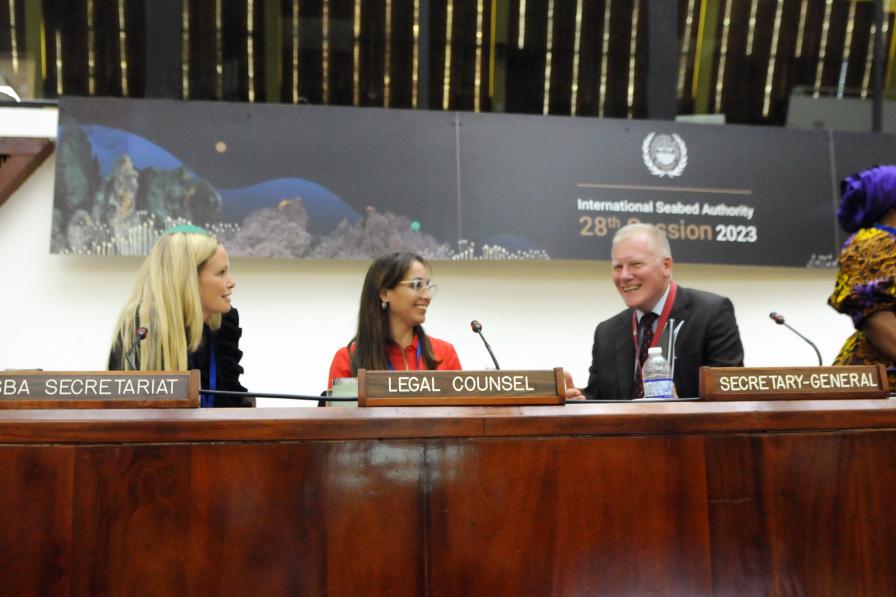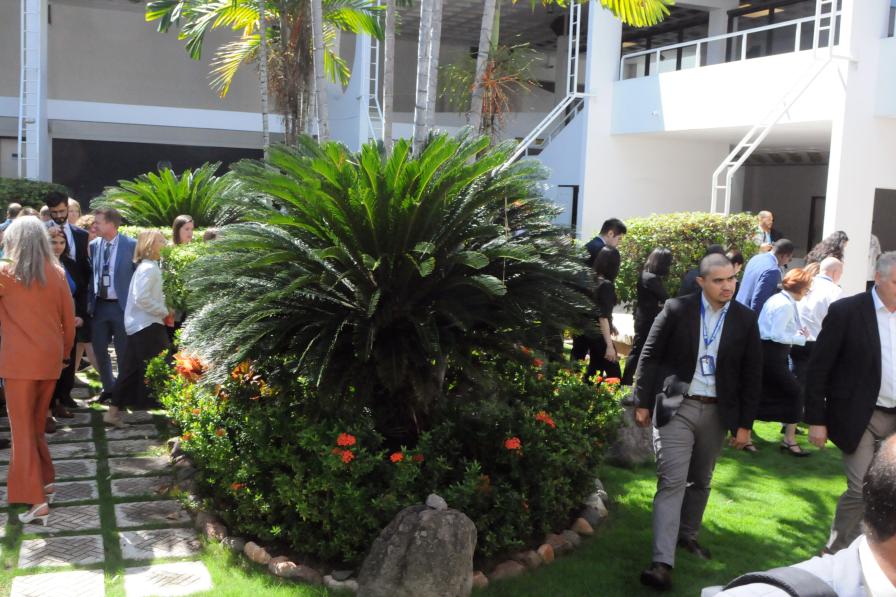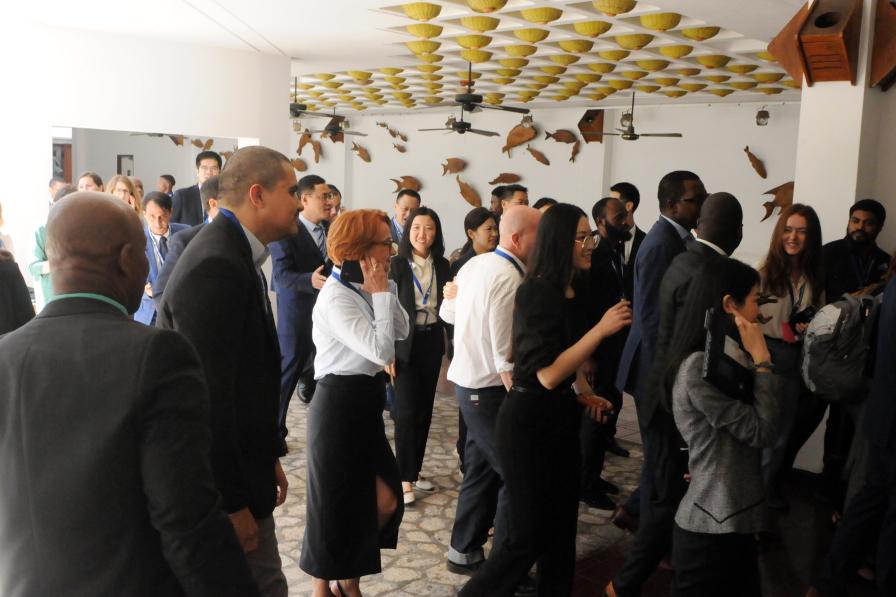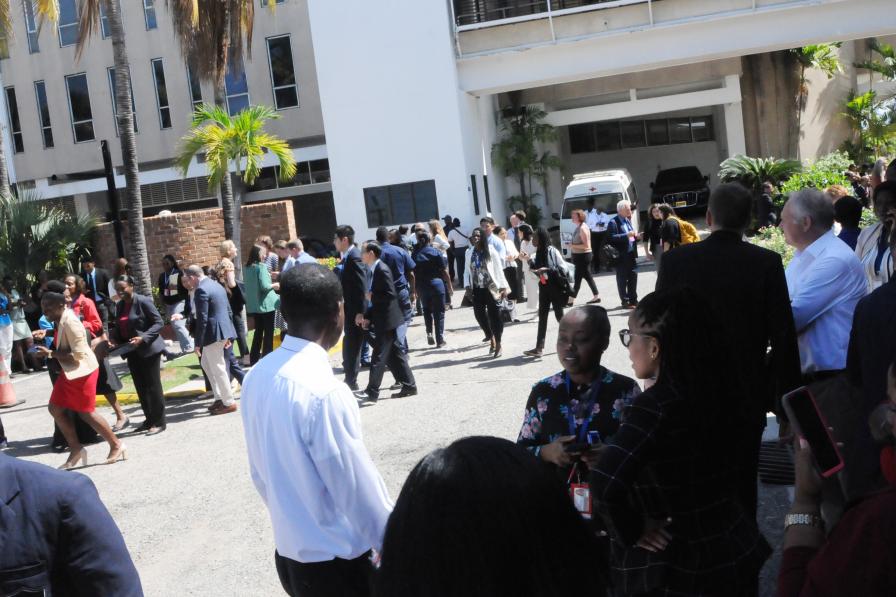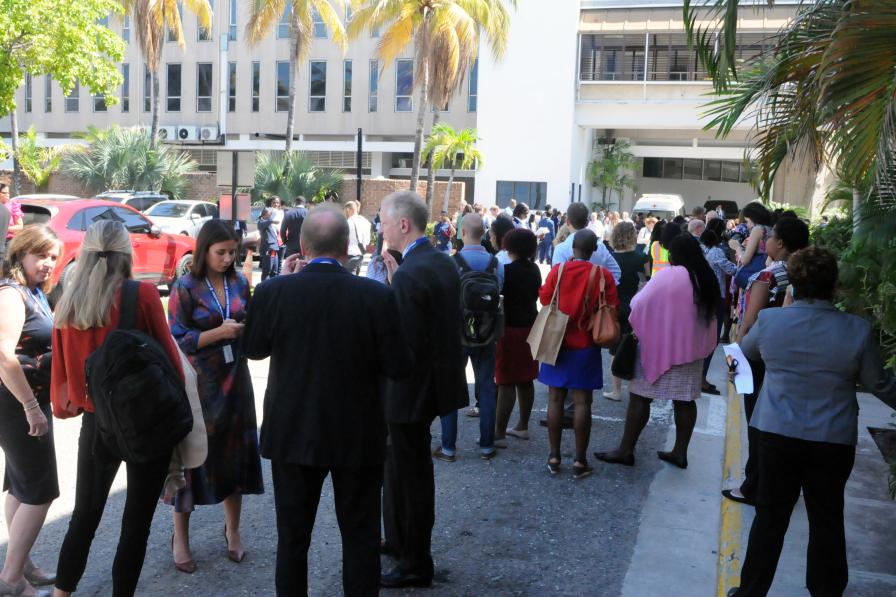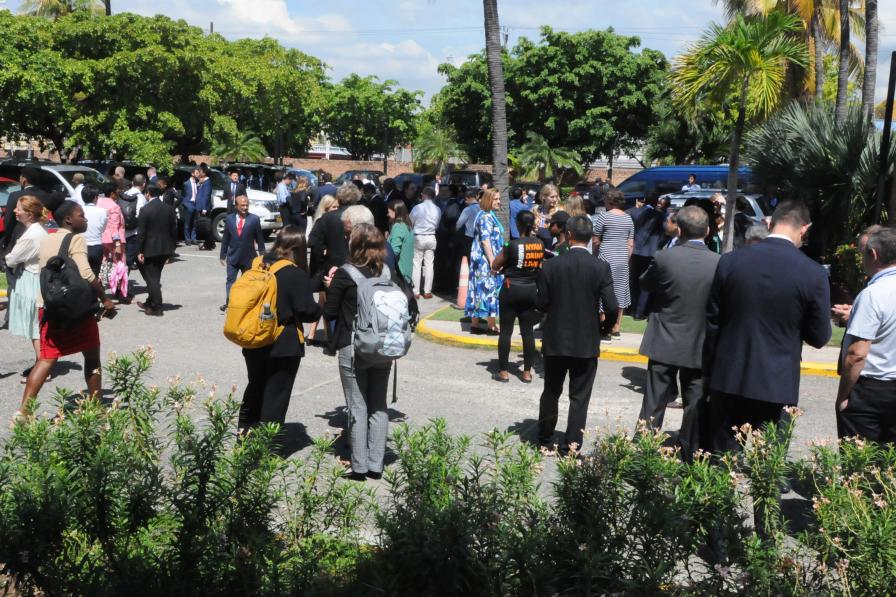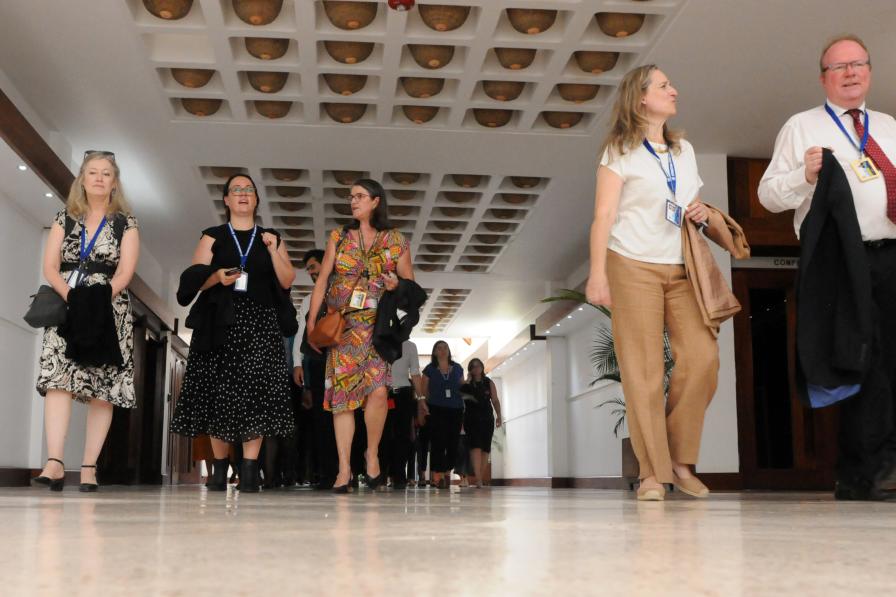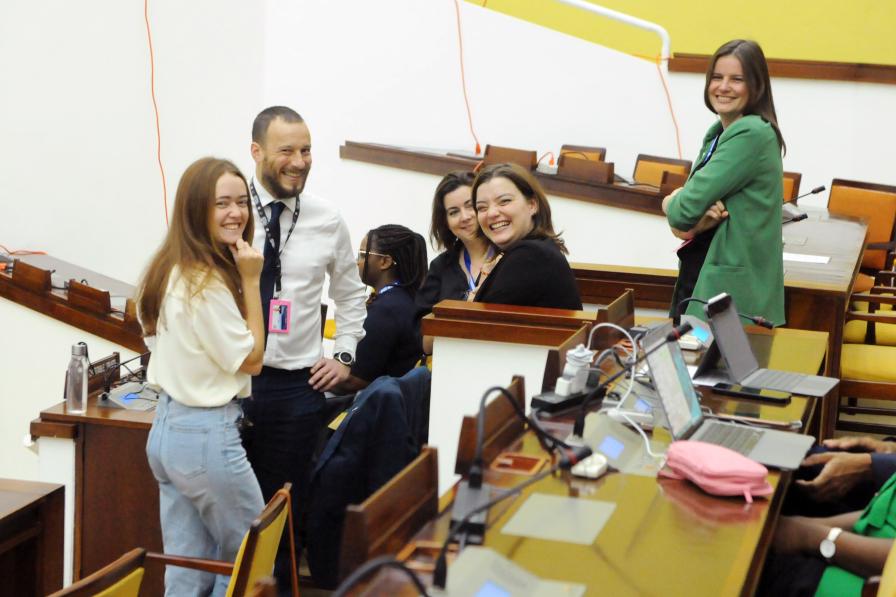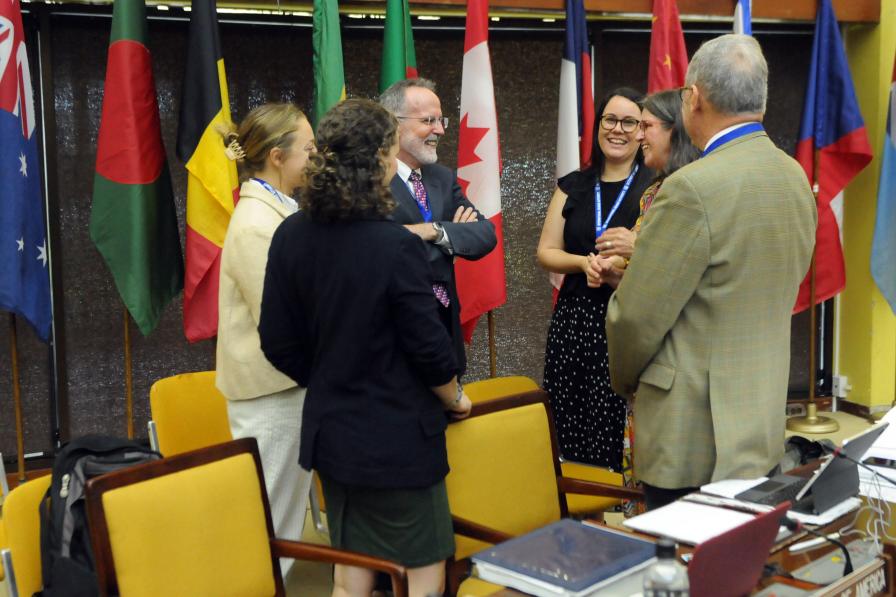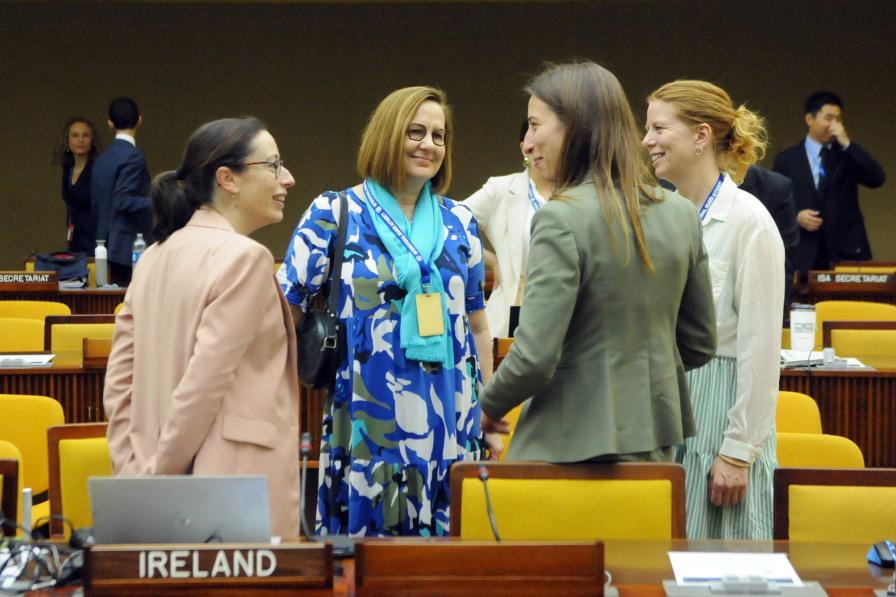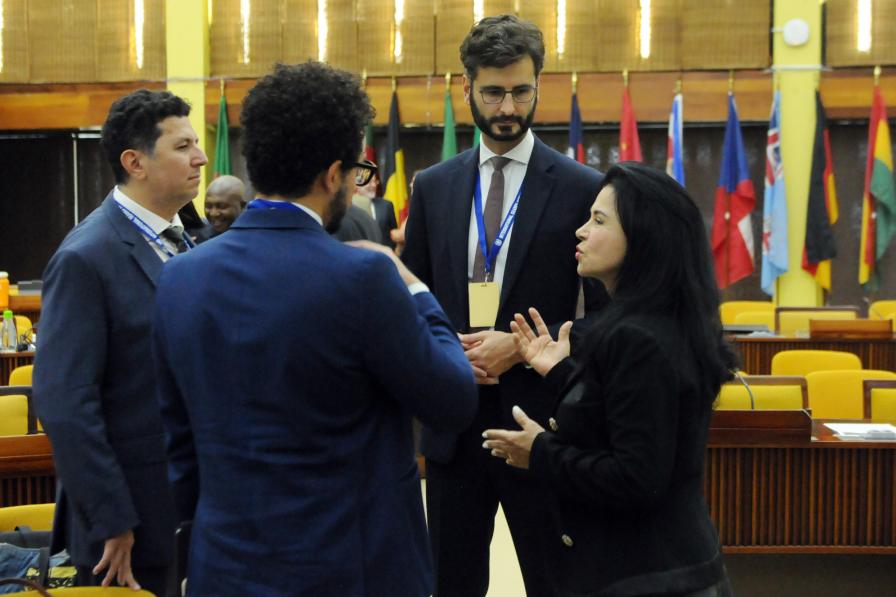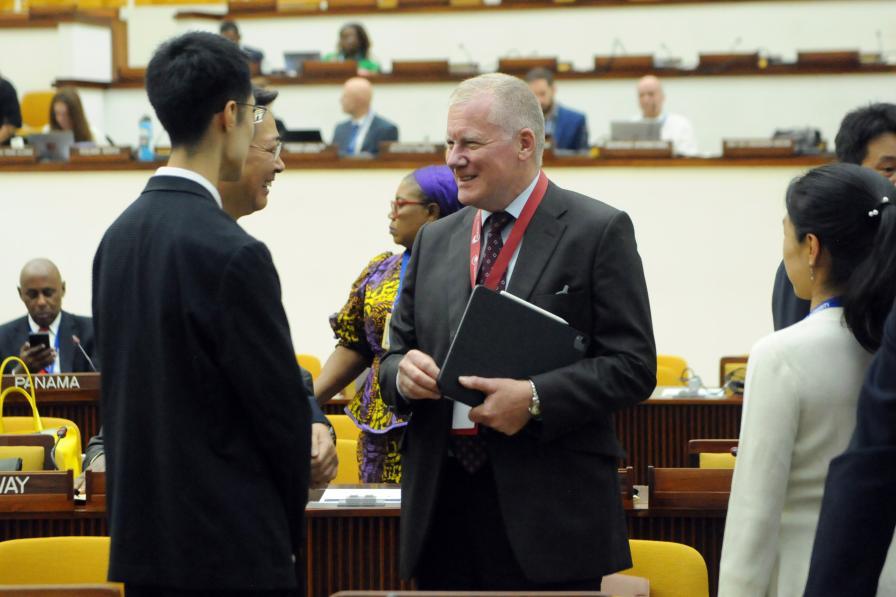Arriving in Kingston, Jamaica, for the third part of the 28th annual session of the International Seabed Authority (ISA), most delegates expected an interesting but uneventful Council meeting devoted entirely to the development of the draft exploitation regulations for deep-sea mining. However, the unexpected happened during the morning session as an earthquake shook the ISA Headquarters, which led to an evacuation and, subsequently, to the meeting’s suspension for the day.
Prior to the earthquake, President Juan José González Mijares (Mexico) opened the meeting, highlighting that, despite delegates’ different opinions on deep-sea mining, “the common denominator is the need to achieve a robust, comprehensive, sustainable, and workable set of regulations that ensures the protection of the marine environment, and fair and equitable benefit sharing.”
In his welcoming address, Secretary-General Michael Lodge noted remarkable progress in the development of the regulations since the last Council meeting in July 2023, congratulating the coordinators and participants of the various intersessional working groups for their hard work. He stressed that “the development of the draft regulations is a duty and not a matter of choice,” as mandated by the UN Convention on the Law of the Sea (UNCLOS) and the 1994 Implementing Agreement. He noted “the regulations are within our grasp,” and invited delegates to continue negotiations in a constructive and cordial atmosphere.
Spain, on behalf of the EU, expressed full solidarity with Ukraine and strongly condemned the Russian Federation’s “unprovoked and unjust war of aggression,” reiterating that the EU will continue providing the necessary support for as long as necessary. The Russian Federation cautioned against politicizing the debate, noting that the ISA is not the right forum for such discussions. He reiterated the Russian Federation’s position regarding the war in Ukraine.
The UK announced its support for a moratorium on the granting of exploitation licenses for deep-sea mining, stressing the need for sufficient scientific data on the impact of mining on deep-sea ecosystems. He announced the development of a national, multi-disciplinary environmental expert network to lead on filling knowledge gaps on deep-sea mining.
Delegates further elected Juan Pablo Paniego (Argentina) to fill a vacant seat on the Legal and Technical Commission, following the resignation of Federico Gabriel Hirsch (Argentina).
President Mijares noted that work will continue Tuesday on the draft exploitation regulations, starting with the Working Group on Inspection, Compliance, and Enforcement. He encouraged delegates to focus on conceptual issues rather than editorial matters. He emphasized that, at this critical juncture in the development of the regulations, smaller, informal, face-to-face meetings can be conducive in advancing the work. He further stressed that on Wednesday, 8 November, the last day of the meeting, delegates will discuss the format of the consolidated text and the way forward for the development of the draft exploitation regulations.
To receive free coverage of global environmental events delivered to your inbox, subscribe to the ENB Update newsletter.
All ENB photos are free to use with attribution. For the 3rd Part of the 28th Annual Session of the ISA, please use: Photo by IISD/ENB | Diego Noguera
